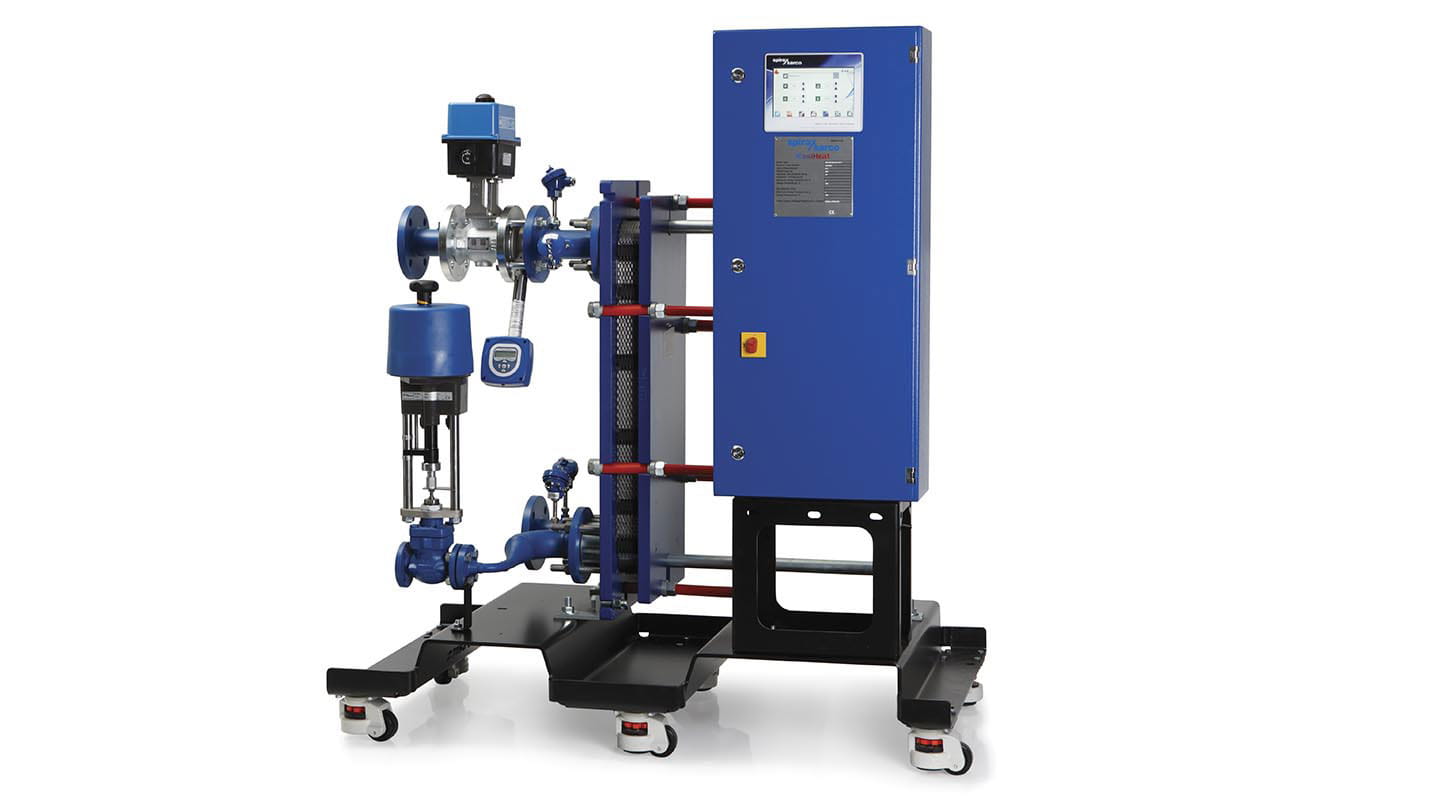Blackpool Victoria Hospital
Cutting the cost of energy and maintenance at Blackpool Victoria Hospital
The acute hospital has upgraded the heating and hot water supply in ten plant rooms to Spirax Sarco’s EasiHeat™ steam-to-hot-water solutions. It has also installed a Spirax Sarco Reverse Osmosis (RO) system and has modernised the site’s steam trap population.
The EasiHeat systems alone are forecast to save Blackpool Victoria Hospital more than £240,000 per annum (p.a.) in energy costs plus an additional £34,000 p.a. in maintenance costs. The EasiHeats replaced shell and tube calorifiers, some of which had been in operation for almost 40 years.
“The system was simply no longer efficient when compared to modern equivalents,” explains the hospital’s energy manager Carla Wilson. “Previously, we had to store water at 60°C to eliminate the risk of Legionella. That water could be sitting there quite a while if there was no demand for it in parts of the hospital, and all that time it would be losing energy.”
EasiHeat is a ready-to-install system that uses steam in a compact, plate-and-frame heat exchanger to provide instant hot water for space heating and domestic hot water. As the hot water is supplied on-demand, there is no need to store it, avoiding the associated energy losses and significantly reducing the risk of Legionella.
Calorifiers are pressure vessels that must be stripped down regularly for insurance inspections, a task that typically takes several days. EasiHeats do not need to meet this requirement. This saves substantial maintenance costs and frees up the hospital’s maintenance team to focus on preventative maintenance, helping the hospital to maintain Health and Safety compliance and conserve
plant operations.

EasiHeat Solution
The Spirax Sarco RO system will bring further savings by reducing water use and energy losses. The RO system treats water before it reaches the boiler feedtank and removes more than 98% of contamination to produce high-quality, low-conductivity boiler feedwater. This allows the amount of boiler blowdown to be reduced, saving energy and water while still preventing dissolved solids from accumulating in the boiler to avoid problems such as foaming.
Spirax Sarco’s steam expertise enabled the work at Blackpool Victoria Hospital to be completed on time despite a tight deadline. Six plant rooms were refurbished initially, funded by a £1.37 million grant from the Department of Health. The terms of the grant meant the hospital had just six months to complete the work. This was made more challenging because the work had to be carried out during winter when demand for heating would be at its highest.
“It was a challenge,” admits Mrs Wilson. “We are a big hospital with a very busy A&E department and it was crucial we could ensure all areas had hot water and heating during this time. However, the short lead time and assured delivery date given to us by Spirax Sarco enabled this project to progress at the speed it needed to.”
“We are a big hospital with a very busy A&E department and it was crucial we could ensure all areas had hot water and heating during this time. However, the short lead time and assured delivery date given to us by Spirax Sarco enabled this project to progress at the speed it needed to.”Energy Manager Carla Wilson
Refurbishment of the remaining four plant rooms was completed in August 2014, ready for the project to be handed over in September. Although it is early days, Mrs Wilson says there has been a noticeable drop in steam use at the hospital. Conditions in the plant rooms have also improved. EasiHeat’s compact design and superior heat exchange technology means that just 18 units were needed to replace 25 calorifiers. This increased the available space in the plant rooms and reduced the air temperature, making the rooms much more pleasant for staff.
In total, these energy-saving measures are forecast to reduce Blackpool Victoria’s carbon emissions by more than 1,400 tonnes p.a. This will enable the hospital to make further savings as a result of reduced payments under the CRC Energy Efficiency Scheme.

